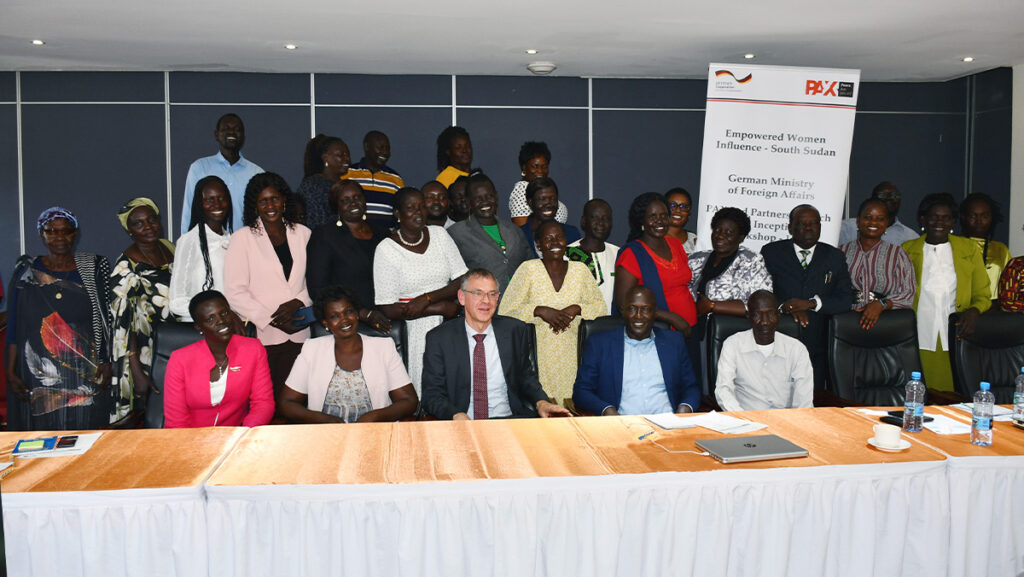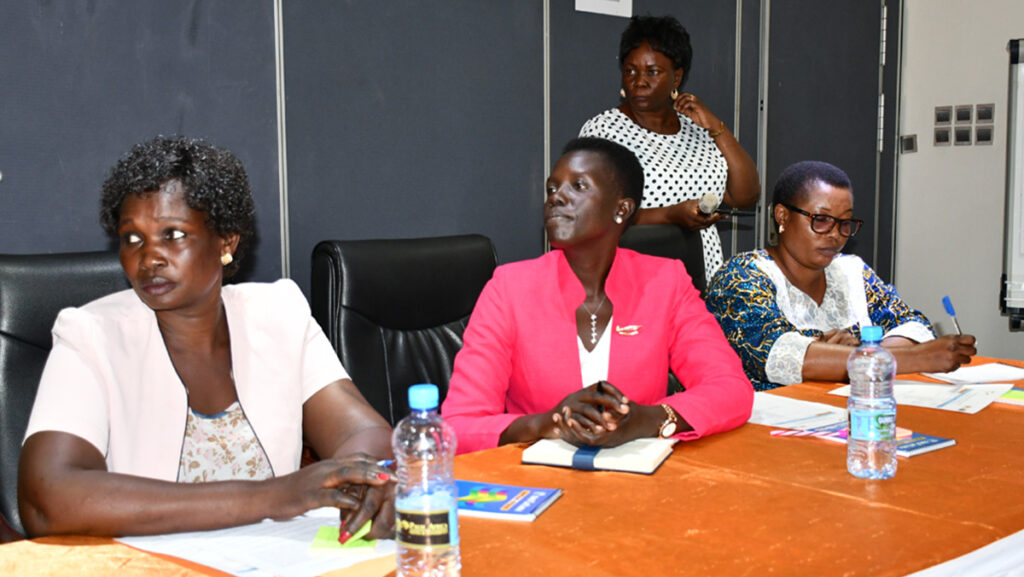PAX has launched a three-year program in South Sudan, which aims to empower women to take over leadership positions and end gender-based violence. The program targets seven states across South Sudan. The project, titled Empowered Women Influence, is financially supported by the German Federal Foreign Office and will be implemented by six partners in the next three years.
PAX country director for South Sudan, Emmanuel Ira, explains the project’s aims to protect women from gender-based violence and to empower women to enhance peace in their communities: ‘The partnerships are going to strengthen the capacity of women leaders to jointly influence legislation, judiciary reforms, and sustainable peace to enhance female leadership in the country and at all levels.’

Empower women to lead peace processes
The German Ambassador to South Sudan, Christian Sedat, expressed optimism about the role the project will play in transforming the situation of women and girls in the country. ‘The project will empower women to participate in and lead peace processes at the local, state, and national levels,’ he said.
The project will provide technical training every year to fifty female parliamentarians, three female-led Civil Society Organizations, and forty women advocates on legislative processes, judicial processes, democratic principles, reconciliation processes, and advocacy.
Long after the project has come to an end
‘The project is going to train the different groups, explains Emmanuel Ira, ‘For example, advocacy groups are going to be capacitated on how to engage in advocacy. They will go to communities and identify what the issues are. With the skills and knowledge gained in the project they will continue to advocate for many issues even long after this project has come to an end.’
Suzan Wasuk, a representative from the Ministry of Gender, Child and Social Welfare, appreciated participants for the advocacy and encouraged their number to grow bigger because there is a lot to be put in play due to the many gaps. She also encouraged that capacity building needs to be done for the police and doctors who are directly involved with the victims of gender-based violence. ‘A lot needs to be done in the three years of the project,’ she emphasized.
Customary courts presided by older male judges
According to a study conducted by South Sudan Law Society and Legal Action Worldwide a substantial proportion of its women experience gender-based violence either in the form of physical or sexual violence in their lifetime Unfortunately about 90% of gender-based violence cases are heard in customary courts presided by older male judges with deeply ingrained patriarchal views. This generally condones domestic violence. South Sudan accounts for the second highest prevalence case of gender based violence in East Africa.





